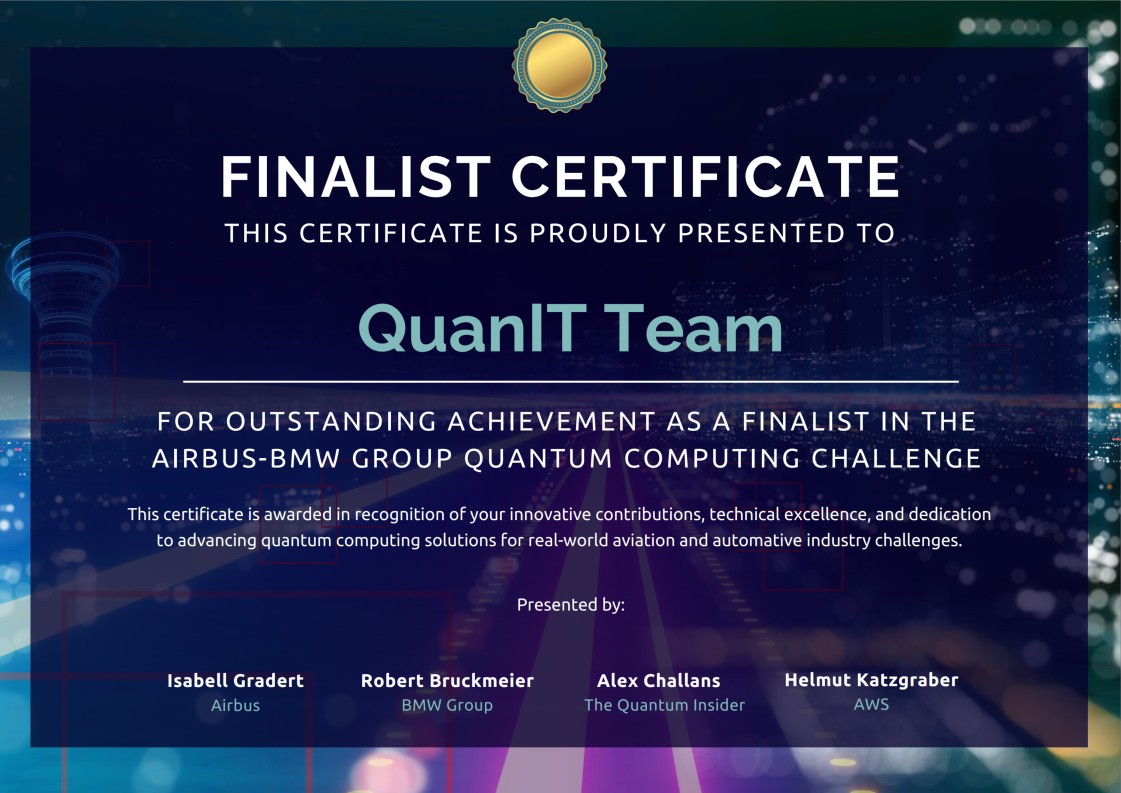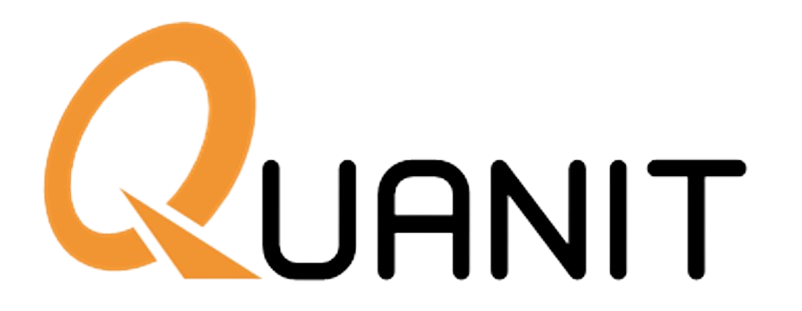Back in December 2024 the winners of the Airbus BMW Group Quantum Computing Challenge were announced. On this occasion, our heartful congratulations go to Quandela as winning that use case, as well as to University of Southern California, 4colors Research Ltd, University of Hamburg and TU Delft as winners of the other cases.
 At the same time, we are proud to say that QuanIT, together with experts from DXC Technology and Kipu Quantum, was one of the three finalists in the Quantum Enhanced Autonomy use case.
At the same time, we are proud to say that QuanIT, together with experts from DXC Technology and Kipu Quantum, was one of the three finalists in the Quantum Enhanced Autonomy use case.
From more than 400 registrations and over 100 proposals that have been submitted 15 finalist in 5 use case categories were selected. We were honored to be part of this exclusive group.
“Our” use case looked into the conversion of camera recordings from day to night scenery. Those recordings are a typical input for verification and validation of autonomous vehicles (AVs), be it a car or plane.
But returning to the quantum-related aspects of this blog, there is much more to explore. Nevertheless, a far broader discussion could be had on the challenges, requirements, and applicability of synthetically generated data for training perception stacks of AVs.1
To put it shortly, our approach, based on a bidirectional generative adversarial network (GAN) in a hybrid manner as the discriminator, was implemented as a quantum K means one. The observed computational speedup originated from the reduction of complexity in the order of log(N). Out of the finite amount of time of such challenge and additional needed changes, preliminary investigations confirmed a corresponding FID dependency on the number of used (here simulated) qubits.
Of course, a few months of architectural design including decision on quantum computing platform, pre-integration, testing, failing etc. flew by.
Beyond the technological insights, the most fascinating aspect was the power of collaboration. When a group of like-minded individuals explores a common direction, obstacles tend to be overcome—perhaps not always as planned, and maybe not enough to take first place, but certainly enough to expand perspectives and gain valuable knowledge. This spirit of curiosity and discovery is still shaping the quantum computing community, as reflected in the results of the Airbus BMW Group Quantum Computing Challenge, where three out of five winning teams came from universities.
There’s still a long road ahead, and we’re excited to continue this journey. Stay tuned as we push forward with QuanIT, and if you're curious to learn more or exchange ideas, feel free to reach out — we’d love to hear from you!
